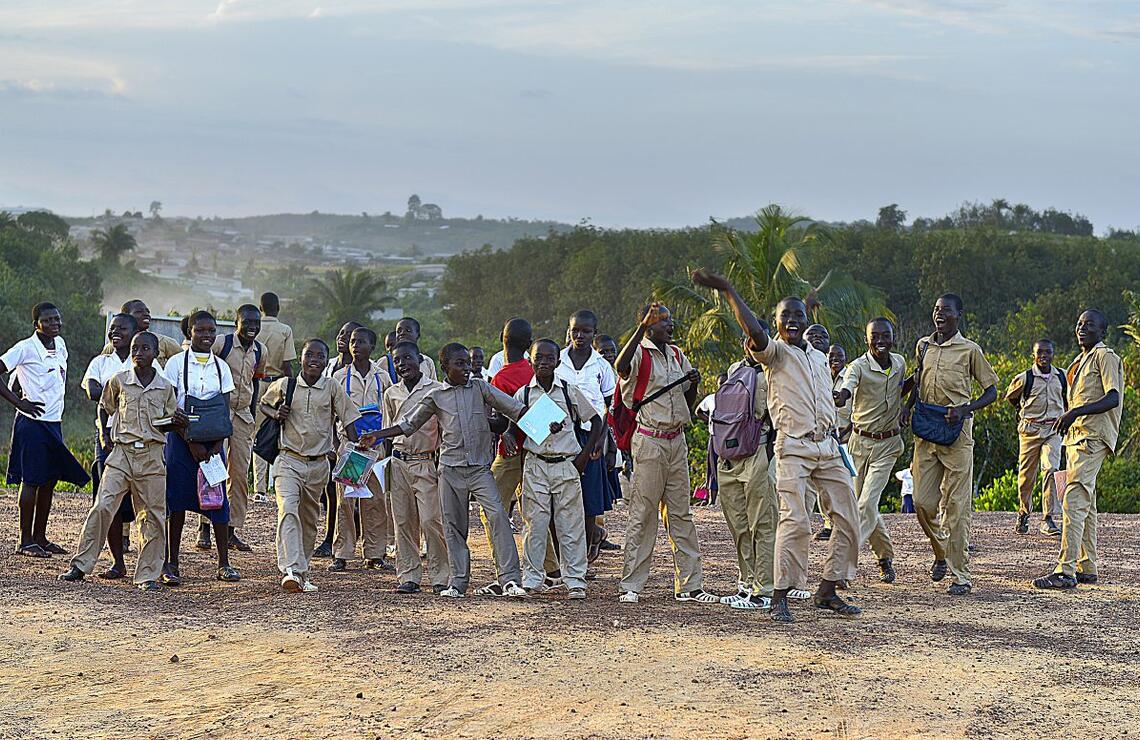
The youths at heart
Young people make up 75% of the population. Under the Constitution, promoting and protecting them is a state obligation. The 15-35 age group is the key to strong, inclusive and sustainable growth.
“I would now like to address our young people, girls and boys, because I am convinced that your talent and energy are an opportunity for our country. I firmly believe in your ability to contribute to the development of Côte d'Ivoire. That is why I have decided to make 2023 the Year of Youth”, declared President Alassane Ouattara in his speech to the nation on 31 December 2022.
In the space of a single sentence that day, the Head of State made young Ivorians, and with them the minister in post since July 2018, Mamadou Touré, the focus of government action until the end of his term of office. Indeed, at the end of 2023, the government announced that the scheme would be extended until 2025. This makes sense in a country where, according to the latest census, young people account for 75% of the population (22 million out of 29 million people).
The aim is to drastically reduce the number of young people who are not in school, and who have no jobs, training or prospects. But, according to the Secretary General of the National Youth Council (CNJCI), Dr Ben Balla Koné, the complex political picture of the West African sub-region was certainly not lost on the President of the Republic as he spoke: “Today, young people are exposed to numerous scourges, including the upsurge in violent extremism on our n
orthern borders, which recruits from among our young people. It is important to take action to keep these young people occupied in a healthy way and to direct them towards what is essential: the development of Côte d'Ivoire.”
Alassane Ouattara's initiative is based on the most solid legal foundation there is: the 8 November 2016 Constitution. Article 34 of the Constitution enshrines the obligation of the State and public authorities to protect and promote young people. Their commitment is defined as follows: ‘To create conditions conducive to the civic and moral education of young people [...] To help young people enter working life by developing their cultural, scientific, psychological, physical and creative potential.’
PROVIDING FUTURE PROSPECTS
In line with the President's desire to make the human factor central to public policy, the aim is to “enable Côte d'Ivoire to have a competent, autonomous and innovative young population, infused with civic, citizenship and moral values, and enjoying physical, mental and socio-economic well-being, so that they are able to participate in the decision-making processes that ensure sustainable development”. This commitment is broken down into four principles, which should guide action in four areas of activity:
- respecting the basic human rights of young people as enshrined in international conventions and the Constitution;
- the need for equity and inclusiveness in the choices, initiatives and programmes implemented under the National Youth Policy (PNJ), so that no one is left behind;
- ensuring gender equality in the programmes undertaken;
- sustainability, which requires that actions implemented under the NYP solve young people's problems in the short, medium and long term without compromising the opportunities of future generations.
The Year of Youth programme translates these principles into action in the areas of education, training and entrepreneurship, civic engagement (notably through the growing importance of civic service) and health. According to the Ivorian government's figures, this policy will mobilise 1118,115 billion CFA francs between 2023 and 2025. This is a very substantial sum, resulting from several contributions. Because the Ministry for Youth Promotion, Professional Integration and Civic Service is a cross-cutting ministry within the government, it consolidates under its aegis the youth initiatives of all the ministries into a single programme, along with those of development partners, including the UN and the World Bank.
TANGIBLE OUTCOMES
The results are extremely convincing. According to official statistics, in eighteen months over a million young people have already been directly impacted, and more than 8 million indirectly. In more detail, a wide range of achievements have been made, such as building infrastructure (including fourteen technical vocational establishments, three civic service centres and 112 training facilities), recruiting 200 disabled young people, assisting 450,000 young people with their administrative procedures, allocating 136,000 grants, getting 209,000 young people into the workforce, and drawing 86,000 people into the entrepreneurship programme, etc. The ultimate goal is to enable 3.5 million young people ‘to access and remain in sustainable and decent employment’.